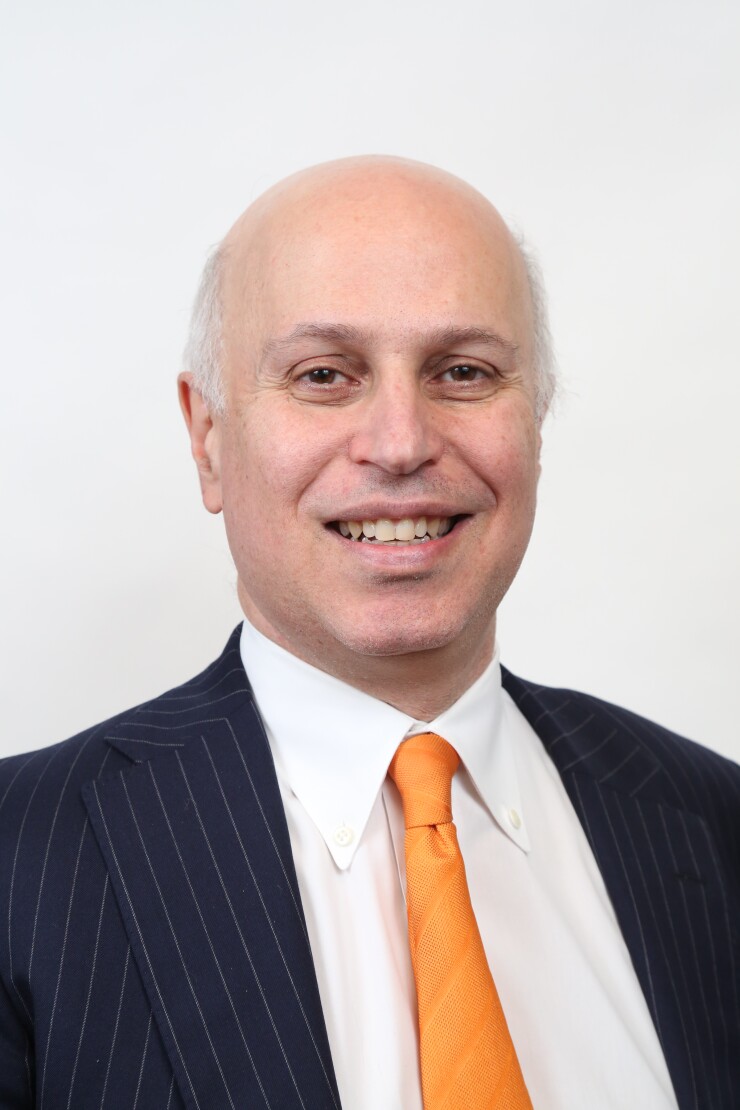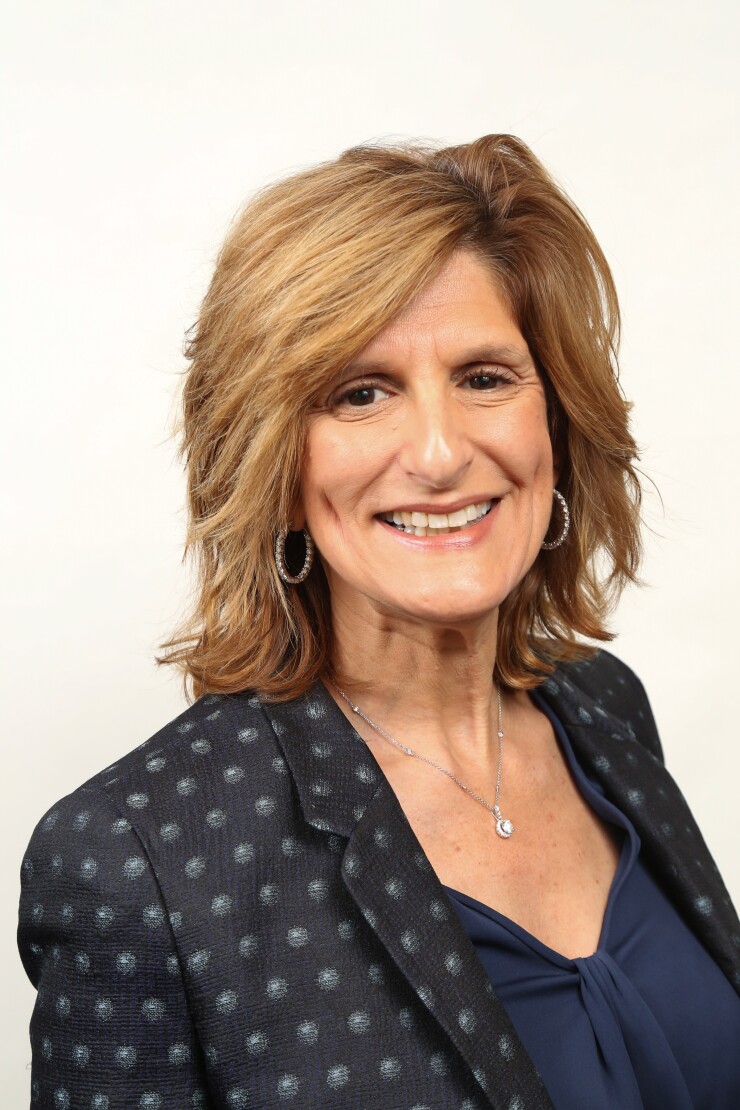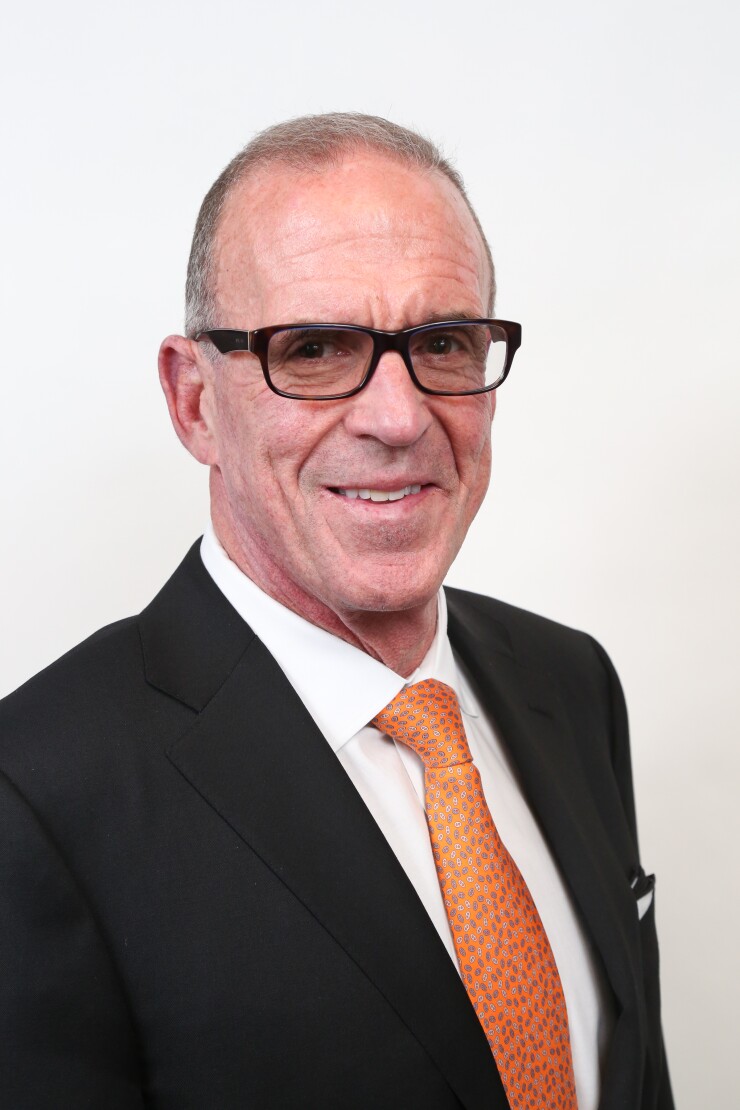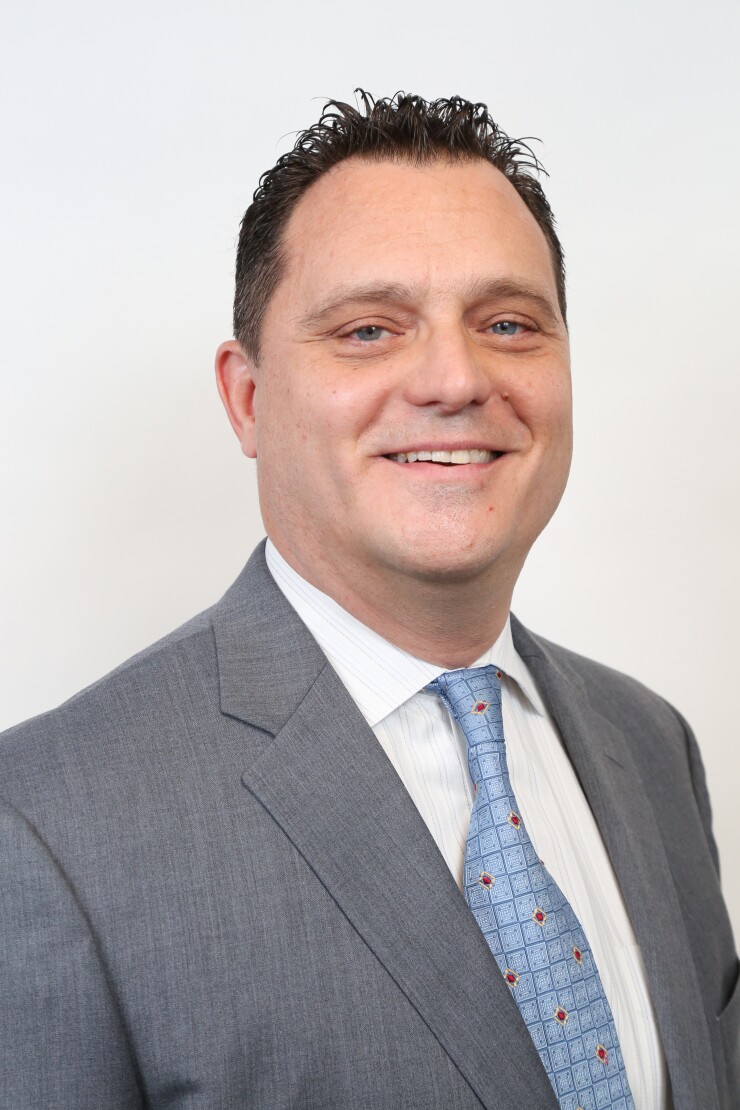When, where, why and how to move were the topics du jour when On Wall Street recently beckoned its panel of industry recruiters for our annual session on hot trends in advisors’ career paths.
We also discussed their views on the Broker Protocol, the #MeToo movement, advisor compensation and where the next generation of advisors will come from. We talked about which brokerage should be emulated (but isn’t) by others in the industry, and which of our participants no longer dreams of playing in the NBA. The discussion was at its best when our panelists began asking each other questions and getting each other’s insights. (We took no offense, a good journalist knows when to shut up and listen.)
Our participants are well-rounded individuals with outside pursuits and interests — no automatons here. Elizabeth McCourt, president of McCourt Leadership Group, for instance, just had her first novel (a legal thriller called “Sin in the Big Easy”) published in the days since our meeting.

In addition to McCourt, our full panel included: Mindy Diamond, president and CEO of Diamond Consultants; Mark Elzweig, president of Mark Elzweig Co.; Michael King, president of Michael King Associates; Rick Rummage, president of the Rummage Group; Danny Sarch, president of Leitner Sarch Consultants; and Bill Willis, president and CEO of Willis Consulting.
Below is a lightly edited version of our discussion. This is the first of three installments.
On Wall Street: What development in the industry didn't get as much press as it should have over the past year?
RUMMAGE: I would say the big story is what we call in my office ‘the great awakening.’ With all the changes over the past 18 months, advisors are finally waking up and looking outside the wirehouses. We have more advisors now willing to talk about independence, about IRAs, hybrids and regional firms than ever before. By far.

WILLIS: If I could add to that, we're all hearing from advisors about all the changes that can have a major impact on a business they’ve nurtured their whole lives. It makes people want to leave and get into a place where they have control of things. So the independence movement, which was well established, has picked up speed. Stalling a little bit now with the non-protocol talks, but once we figure that out, the two non-protocol firms will have taken a huge gamble if everyone else doesn't join them. They could really be in trouble. Because underlying it all, they also don't have any organic growth. What are they going to do if everyone leaves?
DIAMOND: The wirehouses sorely underestimated how important control and choice are to advisors. It’s the reason people are willing to consider independence. The reason why firms like Morgan and UBS, who are outliers in terms of
OWS: Does that make the job of the recruiter better? Or do you look back wistfully at the good old days?
RUMMAGE: We have to be better now. There are 1,700 firms that are part of protocol. That's a lot of stuff to know. And there are 10 model firms. So we have to now know and be able to explain to advisors more than we ever had as far as their options. Otherwise, we're not adding value.

MCCOURT: One thing that’s not in the news, and I'm a little surprised, is the #MeToo development. We heard about that in every other industry, but there really hasn’t been as much about it in the finance and wealth management industry. We're not having that conversation. And we don't need to have it in an antagonistic way, it could be in a more positive way, but I don't see it being discussed in any way. (Note: since our discussion,
WILLIS: On that issue, having been in the industry a long time, I think there are much better practices now than in the past. The industry was horrible in the ‘70s, '80s and '90s. But the result of those bad things, there is pretty much a zero tolerance in the industry right now. I’ve represented people who have been terminated for very minor things that were considered harassment … So I think the industry, which was terrible, was actually a little early in cleaning itself up. That's not to say there aren't bad practices now. Certainly the number of women in the industry is proportionally very low.
SARCH: Two things surprise me. One is that nobody has duplicated any of the corporate strategies that Raymond James, which I think arguably is the most successful among all the channels...

OWS: What are they doing specifically that makes them so successful?
SARCH: They gave a freedom of choice amongst the different channels. And the owner owns the book. And they actually care about customer service. Think about these giant recruiting deals, say two years ago. Raymond James’ attrition on the employee channel was still less than 1%. The second point that I find surprising is with Morgan Stanley and UBS's
Among recent career changes, Merrill Lynch lost brokers managing $2.2 billion to rival J.P. Morgan Securities.
ELZWEIG: The thing that I find astounding is that essentially firms like Morgan Stanley or UBS — I would call them me-first organizations because when an advisor leaves they often get sued — are obviously putting its own interest in front of the clients and in front of the advisor. It's bad for the client … I think this is just the beginning. The firms that have left the protocol and
OWS: In this regard, it seems like a lot of the wirehouses are now acting more like retail banks, which make no bones about the fact that they own the client relationships, not the advisors. Is that fair?

RUMMAGE: Yeah, but the big difference is that banks can make an argument, which is true, that the customer was a customer of the institution first, and then came over to the advisor. In a wirehouse, that's not the case. The only person the client knows is often the advisor and maybe the sales assistant. They bought them into the institution. So I'm kind of shocked that any non-solicit holds up anywhere … Part of the reason advisors stay at Merrill and Morgan is because they feel that if they leave for a small firm, their clients will think they took a downgrade, or demotion. So secretly they're scared that they’ll lose that name.
OWS: So those names, the big brands, still hold value?
RUMMAGE: They do, but there are still more advisors at non-brands in the U.S. than there are at a brand. Just think, there are 10,000 RIAs.
ELZWEIG: I would add that with a bank, the customer also feels their relationship is with the institution.
OWS: Are clients more likely to stay with the big names that are considered glamorous?
WILLIS: There are some clients who have been associated with those brands, typically elderly clients, and are a little more comfortable there. Younger clients typically aren't quite as enamored, because they heard more bad than good about those brands. But if we had 10 clients here, we’d get a lot of different opinions.
OWS: Last May, Morgan and Merrill both said they were cutting back on recruiting especially for high-end advisors. Did the massive recruiting deals finally hit a point where they’re just not sustainable?
KING: I think the big firms have a great deal of arrogance. They think they are the best in the world, and that nobody can compete with them. I think them pulling back affects all of us. If anyone tells you it doesn't affect recruiting, it’s nonsense. Of course it affects recruiting in a very difficult way. We'll see what happens in the next six months.
WILLIS: The idea that they're saving so much money isn’t true. People misjudge that. What are they really saving? The [recruiting packages] are amortized over 10 years. So when you stop recruiting for a few months, you're not [saving that much].
OWS: Is this just for a few months, though?
WILLIS: It's such a minor effect in the body of notes they're carrying. Now what really may be possibly impacting UBS and Morgan is some of the retention deals and some of the deals that UBS wrote for a lot of the Lehman Brothers guys. Those are all coming off. A lot of big deals are ending.
MCCOURT: Absolutely. The timing of course is that '08 and '09 were busy for recruiting, particular for UBS. And now they're all coming off those deals. And how do you keep those advisors from going to the independent space?

SARCH: Lock the door.
RUMMAGE: What's surprising, instead of locking the door and making it like a prison, why not open a door and make it like an amusement park? If I was running a wirehouse right now, I would come out with anything I could that would make it an easier place for an advisor to run their business. ‘We've improved our technology. We're having a lower ratio of sales assistants to advisor. We're going to allow you to hire junior brokers. We're going to do these things for you.’ But, no, they're locking the door and they're keeping them in. You're dealing with a bunch of alpha, type-A individuals, and when you tell them they can't do something, they're going to do it anyway.
OWS: We’ve touched on the Protocol, let's go around the table, who’s the next to leave?
ELZWEIG: I personally think that both Wells Fargo and Merrill are going to stay in the protocol.
OWS: So who will leave?
RUMMAGE: It's going to be a big bank. Without naming the name, it's going to be a big bank that's going to announce next.
DIAMOND: I think it will be Merrill. The one that really matters will be Merrill. And if Merrill goes, Wells goes. But it may not happen for a little while.

SARCH: Merrill is the best situated of all the big firms to compete in a non-protocol world, partly because Merrill Edge is an established presence in the Bank of America branches. So if you're [Bank of America CEO] Brian Moynihan, you’ve got the branch brokers and the Merrill Edge program — they're locked in. And this triple-A team, if you will, is the most profitable part of Bank of America. Let's just say the Scranton Yankees are making more money than the New York Yankees. [Note: The minor league baseball team in Scranton, Pennsylvania is called the RailRiders , and are indeed affiliated with the Yankees.] Then you've also got U.S. Trust. They're all locked in with contracts. And you’ve got all the Merrill Lynch guys.
OWS: Let's finish going around the table on the protocol. Elizabeth?

MCCOURT: I agree with Mindy. I think it's going to be Merrill, and if they do it, then Wells. I think that's just logical.
WILLIS: I don't know who is going to move next. I think if Merrill and Wells hang in there, it could win a big bet. They can dominate that space. Because if they are the good guys with the white hats, they're going to be the winners. It's odd when you consider this. These are the only two firms that have organic growth. UBS and Morgan Stanley have zero organic growth. Both Wells and Merrill have the banks creating new brokers, those two places are where you can really make it as a 20-something in this industry.

RUMMAGE: But Merrill has actually convinced their advisors that they don't want a relationship under $250,000. That's insane to me. Everybody knows in the brokerage business, you upsize as you go along, but that doesn't mean you get rid of the small ones. All of them will grow. You could have somebody else who’s junior run those small accounts and still make $30,000 to $50,000 a year off them. But they’re brainwashed to believe they have to give them up.
WILLIS: I'll tell you how. When I was there, we had a survey, and the average client under $250,000 was called once every 14 months. That’s a lawsuit waiting to happen for you. And if you give it up to the help desk, they'll be called four times a year and you could have some trail of earnings from that for some period of time.
Check back next week for the second installment of our Recruiters Roundtable.






